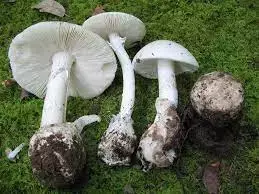- Home
- Medical news & Guidelines
- Anesthesiology
- Cardiology and CTVS
- Critical Care
- Dentistry
- Dermatology
- Diabetes and Endocrinology
- ENT
- Gastroenterology
- Medicine
- Nephrology
- Neurology
- Obstretics-Gynaecology
- Oncology
- Ophthalmology
- Orthopaedics
- Pediatrics-Neonatology
- Psychiatry
- Pulmonology
- Radiology
- Surgery
- Urology
- Laboratory Medicine
- Diet
- Nursing
- Paramedical
- Physiotherapy
- Health news
- Fact Check
- Bone Health Fact Check
- Brain Health Fact Check
- Cancer Related Fact Check
- Child Care Fact Check
- Dental and oral health fact check
- Diabetes and metabolic health fact check
- Diet and Nutrition Fact Check
- Eye and ENT Care Fact Check
- Fitness fact check
- Gut health fact check
- Heart health fact check
- Kidney health fact check
- Medical education fact check
- Men's health fact check
- Respiratory fact check
- Skin and hair care fact check
- Vaccine and Immunization fact check
- Women's health fact check
- AYUSH
- State News
- Andaman and Nicobar Islands
- Andhra Pradesh
- Arunachal Pradesh
- Assam
- Bihar
- Chandigarh
- Chattisgarh
- Dadra and Nagar Haveli
- Daman and Diu
- Delhi
- Goa
- Gujarat
- Haryana
- Himachal Pradesh
- Jammu & Kashmir
- Jharkhand
- Karnataka
- Kerala
- Ladakh
- Lakshadweep
- Madhya Pradesh
- Maharashtra
- Manipur
- Meghalaya
- Mizoram
- Nagaland
- Odisha
- Puducherry
- Punjab
- Rajasthan
- Sikkim
- Tamil Nadu
- Telangana
- Tripura
- Uttar Pradesh
- Uttrakhand
- West Bengal
- Medical Education
- Industry
Liver transplantation an effective treatment of acute liver failure caused by Amanita verna: Study

Liver transplantation is an effective method for the treatment of acute liver failure caused by Amanita verna, according to a recent study published in the BMC Surgery.
Amanita verna, commonly known as the fool's mushroom, destroying angel, mushroom fool or the spring destroying angel amanita, is a deadly poisonous basidiomycete fungus, one of many in the genus Amanita. Occurring in Europe in spring, Amanita verna is associated with various deciduous and coniferous trees. Amanita verna is one of the most harmful wild fungi in China. Amanita verna poisoning occurs every year, and the mortality is as high as 50%. However, its clinical manifestations are complex and diverse. Amanita phalloides, also known as 'death cap', is one of the most poisonous mushrooms, being involved in the majority of human fatal cases of mushroom poisoning worldwide.
In March 2019, three patients took a large amount of Amanita, and one of them received liver transplantation in Zhongshan hospital, Sun Yat-sen University. All patients had vomiting and diarrhoea 8–12 h after eating wild mushrooms (Amanita). The patients were initially diagnosed with Amanita poisoning. One case (case 3) was complicated and diagnosed as mushroom poisoning (fatal Amanita), toxic hepatitis, acute liver failure, toxic encephalopathy, hemorrhagic colitis, toxic myocarditis, disseminated intravascular coagulation (DIC) and pregnancy. The general clinical data of all patients were recorded, who received early treatment such as hemodialysis, artificial liver plasma exchange, hormone shock and anti-infection. One case (case 1) recovered smoothly after liver transplantation, and the indexes of liver, kidney, coagulation function and infection were improved. The other two cases died of intracerebral haemorrhage.
Thus, the researchers concluded that liver transplantation is an effective method for the treatment of acute liver failure caused by mushroom poisoning and can improve the survival rate of patients with toxic liver failure.
Reference:
Acute liver failure caused by Amanita verna: a case series and review of the literature by Jianlong Wu, et al. published in the BMC Surgery.
https://bmcsurg.biomedcentral.com/articles/10.1186/s12893-021-01434-6
Dr. Shravani Dali has completed her BDS from Pravara institute of medical sciences, loni. Following which she extensively worked in the healthcare sector for 2+ years. She has been actively involved in writing blogs in field of health and wellness. Currently she is pursuing her Masters of public health-health administration from Tata institute of social sciences. She can be contacted at editorial@medicaldialogues.in.
Dr Kamal Kant Kohli-MBBS, DTCD- a chest specialist with more than 30 years of practice and a flair for writing clinical articles, Dr Kamal Kant Kohli joined Medical Dialogues as a Chief Editor of Medical News. Besides writing articles, as an editor, he proofreads and verifies all the medical content published on Medical Dialogues including those coming from journals, studies,medical conferences,guidelines etc. Email: drkohli@medicaldialogues.in. Contact no. 011-43720751


